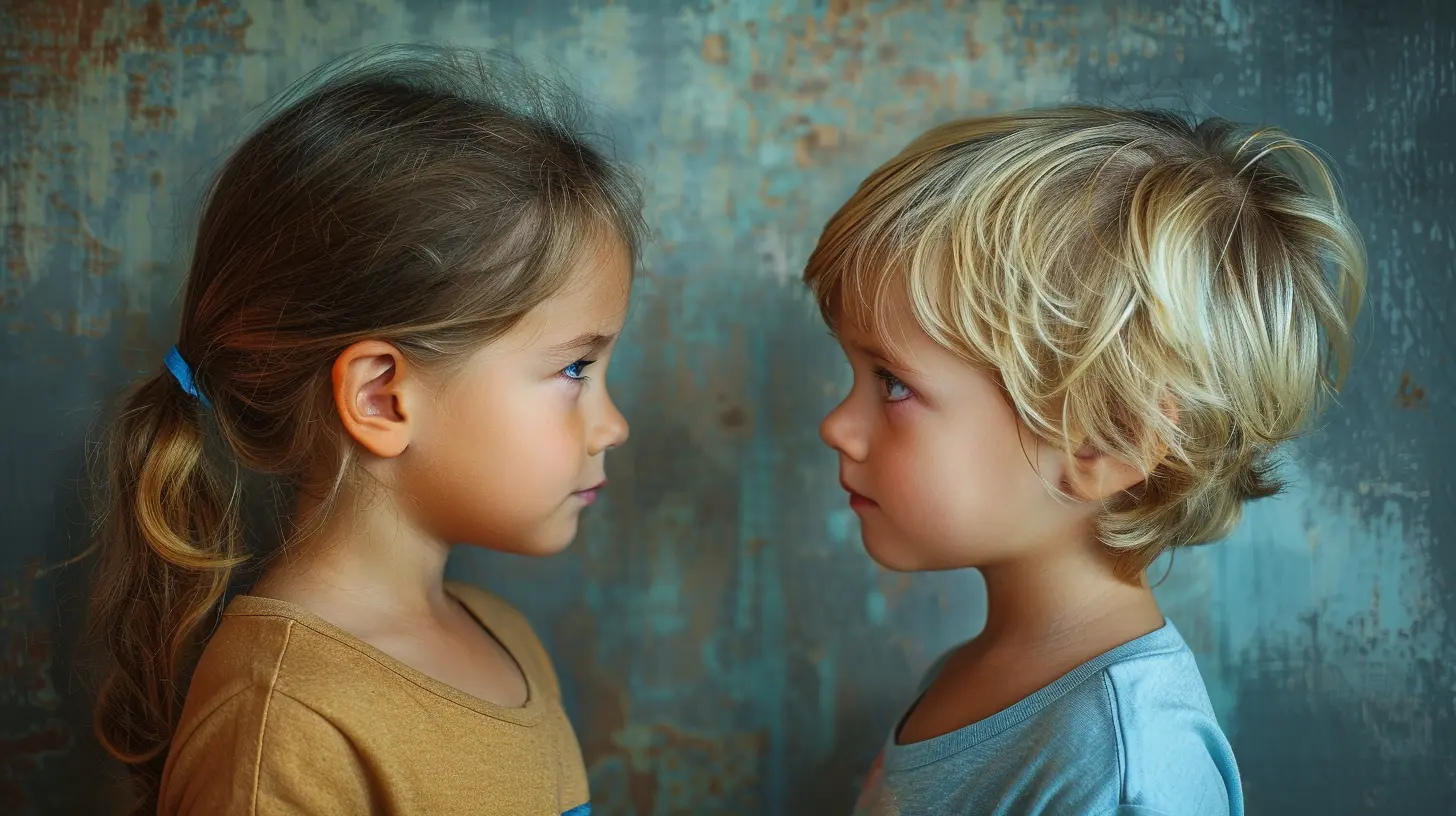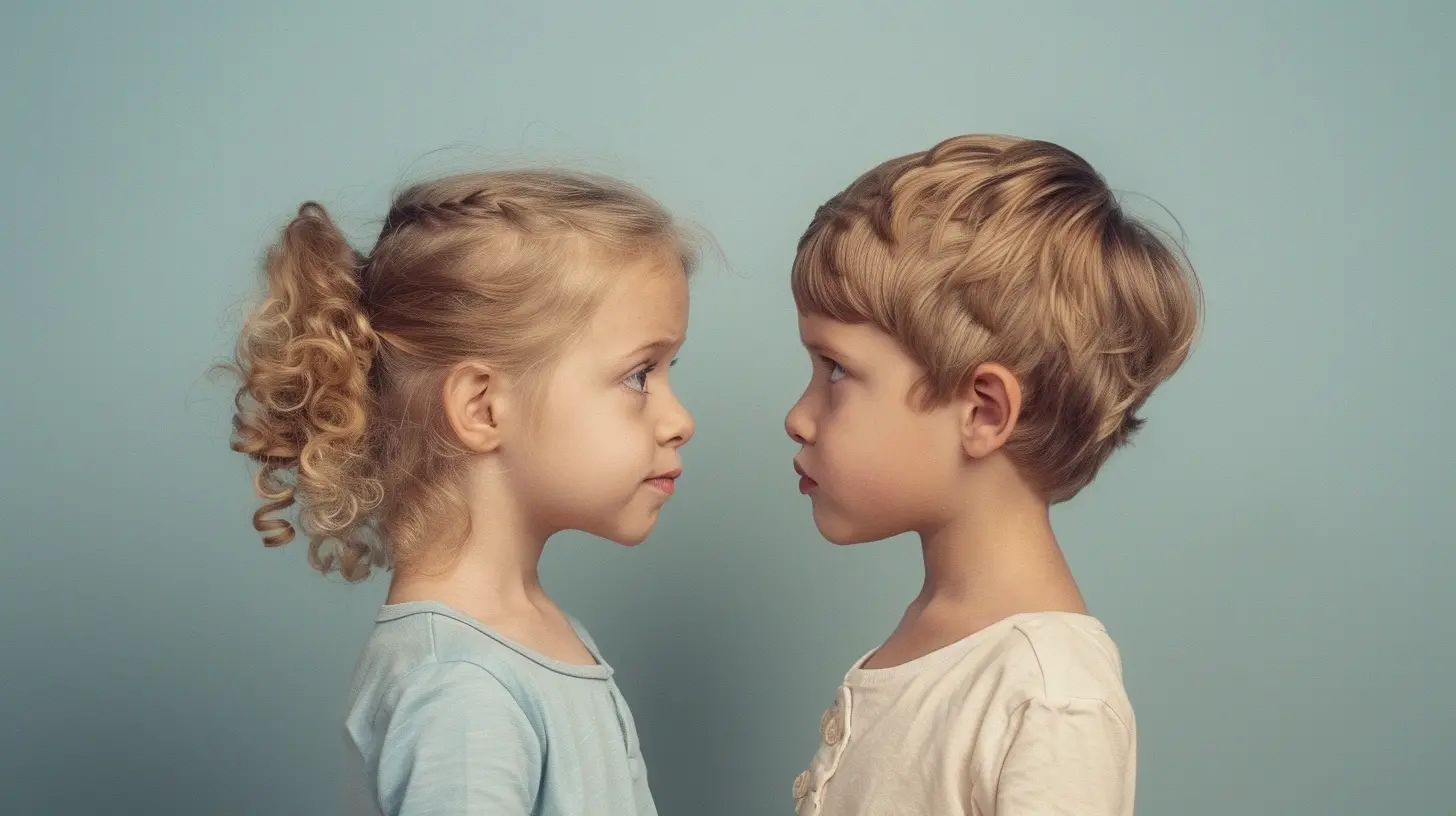How Emotional Intelligence Helps Kids Navigate Peer Pressure
9 September 2025
Ah, peer pressure — that age-old beast that's been tripping up kids since… well, probably since the first group of cave-kids dared one another to stick their hands in mammoth poop. Fast forward a few millennia, and here we are: middle school hallways, Snapchat streaks, TikTok trends, and that one kid in class who always seems to have the latest “thing” before it even hits stores.
As parents, we want our kids to fit in, sure — but not by morphing into human chameleons with no spine of their own. The good news? Emotional intelligence (a.k.a. EQ — not to be confused with IQ, which is a whole other noodle soup) is the secret weapon our kids can wield like Jedi mind tricks when peer pressure comes knocking.
So buckle up, because we’re about to unpack how emotional intelligence helps kids navigate peer pressure — with style, confidence, and maybe even a sarcastic eyebrow raise.
What The Heck Is Emotional Intelligence, Anyway?
Let’s break it down Barney-style. Emotional intelligence is basically the ability to:- Recognize your own emotions
- Understand what those emotions mean
- Manage your reactions
- Pick up on other people’s emotions
- Respond appropriately (instead of losing your marbles)
Think of EQ as your kid’s internal compass that helps them navigate the wild, weird jungle of school lockers, cliques, friend drama, and “Don’t you wanna try it?! Come onnnn” moments.
Now, let’s get into the nitty-gritty of how this magical emotional radar helps kids stand strong when peer pressure is doing the Macarena in their face.
1. Self-Awareness: The First Line of Defense
Before your child can say “no” to someone else, they need to understand what they want. Self-awareness is like that little voice in your head that says, “Hey buddy, this doesn’t feel right.” It’s the conscience GPS.Real-Life Example:
Johnny knows deep down he doesn’t like vaping. It freaks him out. But his friend group is passing a vape pen around like it’s a hot potato. Thanks to self-awareness, Johnny realizes that his stomach’s doing somersaults for a reason. That gut-check moment? That’s emotional intelligence saying, “Psst, this ain’t your vibe.”Self-aware kids are less likely to follow the crowd just to fit in — they know who they are and what they stand for. Boom.
2. Self-Regulation: The Jedi Calm in the Storm
Let’s face it — kids experience big emotions. One minute they’re singing Disney songs, the next they’re crying because someone looked at them weird. When peer pressure hits, emotions can skyrocket: anxiety, fear, excitement, FOMO (Fear Of Missing Out — also known as the emotional kryptonite of middle schoolers.)Here’s the cool part:
Self-regulation helps your child pause, breathe, and think before reacting. Instead of giving in just to avoid being “the weird one,” they take a beat and decide — logically — what feels right to them.It’s like having a wise old turtle inside their brain saying, “Sloooow down. Let’s not make decisions we’ll regret, mmkay?”
3. Empathy: The Secret Social Superpower
Empathy is like X-ray vision for feelings. Your child might not wear a cape, but if they can pick up on how others are feeling (and how their actions affect their peers), they've got a serious social advantage.How does this beat peer pressure?
Let’s say Zoe sees her best friend pressuring another kid to cheat on a test. Zoe’s spidey-sense tingles. Instead of jumping on the bandwagon, she feels for the kid being pressured and steps in with a “Hey, let’s not do this.”Empathy helps kids balance fitting in with doing the right thing. It turns them into the kind of friend other kids want to follow — not out of pressure, but out of respect.
4. Social Skills: Like a Swiss Army Knife for Friendships
Kids with strong emotional intelligence are like social ninjas. They know how to:- Communicate clearly
- Handle conflicts without blowing a gasket
- Say “no” without losing friends
- Spot manipulative behavior faster than you can say “mean girl”
Picture This:
Your son’s new “cool” friend says, “If you don’t ditch your old friends, you can’t sit with us.” Instead of panicking, your son pulls out his social skills toolbox and responds with something like, “I like hanging with you guys, but I’m not dropping people who’ve always had my back. That’s not fair to anyone.”Mic. Drop.
5. Motivation: The Inner Drive to Stay True
Let’s not forget about that inner fire — motivation. Not the kind it takes to get kids to clean their rooms (that’s more like a miracle), but the deeper motivation to be their best selves.Kids with high EQ are more likely to be driven by their values rather than outside validation. They don't need “likes” or approval to feel good — they already know they’re awesome (thanks to you reminding them 14 times a day, of course).
That inner drive helps them resist peer pressure not because it’s the rule, but because it feels right.
The Peer Pressure Traps — And How EQ Dismantles Them
Let’s take a look at some of the classic peer pressure scenarios — the ones that make parents stare wide-eyed into space like, “Please let this be a simulation.” Here’s how emotional intelligence flips the script:🚬 The “Everyone’s Doing It” Trap
Kids with strong self-awareness and self-regulation don’t fall for this one. They pause, think, and go, “Everyone? Literally everyone? Show me your data, Brad.”💬 The “If You Don’t, You’re Lame” Trap
High EQ kids understand manipulation when they see it. With solid social skills and confidence, they may respond with humor: “If being lame means not making dumb choices, I’ll take two orders of lame, please.”🤐 The “Stay Silent or Be Shunned” Trap
Empathy helps kids speak up — not just for themselves, but for others. They realize that silence can make things worse and that sometimes, being a good friend means saying hard things.How Parents Can Help Build Emotional Intelligence (Without Sounding Like a Self-Help Book)
Alright, so now you’re probably thinking, “Cool, cool, EQ is awesome. But how do I get my kid to actually develop it without rolling their eyes so hard they strain a muscle?”Here’s how you can sneak in some emotional intelligence training without making it weird:
1. Model It Like a Boss
Kids watch us like hawks. If we fly off the handle every time someone cuts us off in traffic, guess what? They will too. Show emotional intelligence in your own reactions. Talk about your feelings. Admit when you mess up.2. Talk About Emotions (Even the Ugly Ones)
Use real-life situations to start convos:- "How did you feel when that happened?"
- "What do you think your friend was feeling?"
- "Was that a hard choice? Why?"
Boom — EQ training during dinner. No worksheets required.
3. Role-Play Peer Pressure Scenarios
Make it a game. Do voices. Act ridiculous.- “Pretend I’m the cool kid offering you a giant gummy worm filled with motor oil. What do you say?”
- “You’re at a party and everyone’s jumping in a pool of Jell-O... fully clothed. What’s your move?”
Yes, they’ll laugh. But yes, they’ll remember it.
4. Praise the Process, Not Just Results
Instead of saying, “You're such a good kid,” try, “I really liked how you listened to your gut and stood up for yourself.” This builds confidence in their decision-making, not just their behavior.5. Don’t Rescue Every Time
Sometimes they need to feel that discomfort — the awkward moment, the pushback for standing up for themselves. Be their safe space afterward, not their constant shield before.Remember, you’re raising brave humans, not bubble-wrapped marshmallows.
Bonus: Emotional Intelligence Is Practically a Superpower
Just for the record, helping your kid build emotional intelligence isn’t just going to save them from peer pressure.It’s going to help them:
✅ Handle disappointments
✅ Build real friendships
✅ Excel in future relationships
✅ Thrive in leadership roles
✅ Avoid becoming that weird adult who cries when someone eats the last donut
So yeah... it's kind of a big deal.
Final Thoughts: The Real Glow-Up
Navigating peer pressure isn’t about teaching your kid to say “no” like a robot. It’s about growing little humans who think, feel, and choose in ways that make them proud of themselves — even when it’s hard.Emotional intelligence doesn’t give them immunity to peer pressure, but it arms them with the tools to face it with confidence, clarity, and (when necessary) a good ol’ fashioned eye roll.
Because let’s be honest — the real glow-up isn’t about fitting in. It’s about standing out for all the right reasons.
all images in this post were generated using AI tools
Category:
Emotional IntelligenceAuthor:

Zelda Gill
Discussion
rate this article
1 comments
Damian Frank
Emotional intelligence is crucial for kids to conquer peer pressure. Equip them with the tools to understand their feelings and make confident, authentic choices.
September 20, 2025 at 2:45 AM

Zelda Gill
Absolutely! Emotional intelligence empowers kids to recognize and manage their emotions, leading to healthier decisions and resilience against peer pressure.


